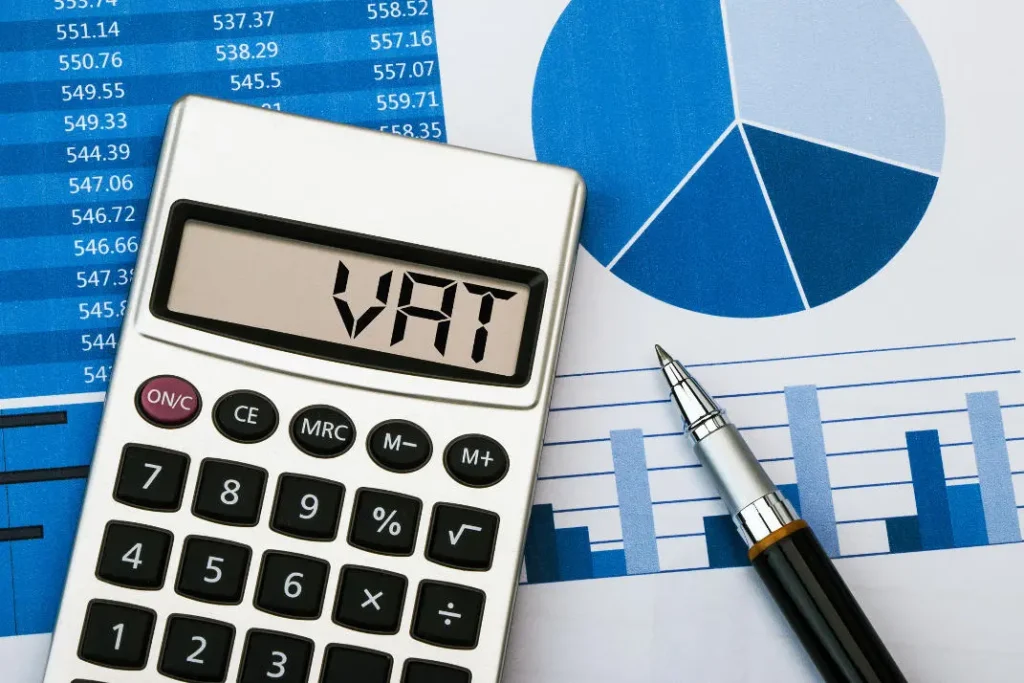In recent years, opening a corporate bank account has become increasingly difficult around the world due to stricter regulations imposed by financial authorities. Thailand is no exception to this, however, the process for opening a bank account for a company in Thailand remains relatively straightforward compared to many other countries. With the right documents prepared in advance, you can typically open a bank account in Thailand within just a few hours.
Certain banks in Thailand will also allow overseas companies who have not been incorporated in Thailand to open “non resident” bank accounts. To open such an account, the application process may require additional document requirements, and could place restrictions on certain banking services (e.g., online banking services and QR code payment with PromptPay).
This blog post will explain the process for opening a corporate account in Thailand as a Thai and Non-Thai entity.
Key Points
- A director must be physically present at the bank to open a corporate account in Thailand – no online or overseas applications are possible.
- Required documents include company registration documents, board meeting minutes, director/shareholder ID or passport, updated list of shareholders and company affidavit.
- Non-resident companies can open Thai bank accounts but face additional requirements and potential service restrictions.
- Documents for non-resident companies must be notarized and certified by the Thai Embassy/Consulate within 6 months of application. If the documents are not in English, they must also be translated.
- Banks have different requirements, fees and services, companies should research options based on their specific needs.
Considerations For Opening a Bank Account in Thailand
Unlike in many other countries, opening a bank account in Thailand is a relatively straightforward process. Banks in Thailand usually do not challenge your business model or ask detailed questions about your intended business activities or operations.
When applying for a company bank account in Thailand, you simply select the applicable business category on the application form and provide the necessary forms and documentation.
When opening a corporate bank account, there are many considerations to be aware of and not all banks will offer all the services you require. Therefore it is important that companies take the time to undertake research and decide which bank is best for their needs.
Thailand has a variety of different options available but each one will offer slightly different services and have different fees and processes for certain tasks. Before choosing a bank it is important to consider certain questions such as:
- Does the company only require a Thai Baht account or do they also require a foreign currency account?
- Will the company require internet banking?
- Will the company be undertaking many international fund transfers (to which countries and in which currency?)
- Will any special banking facilities or services be required such as Promptpay or QR code payments?
- What are the bank fees?
Below is a list of the main banks in Thailand. Please note, each bank will have its own services, application processes/requirements and fees etc.
- Bangkok Bank
- Kasikorn Bank
- Siam Commercial Bank (SCB)
- Krung Thai Bank
- Bank of Ayudhya (Krungsi)
- HSBC
- Standard Chartered Thailand
- UOB
- Citibank

How Long Does it Take To Open a Corporate Bank Account?
The amount of time required to open a bank account in Thailand, depends on which banking services the company requires. If the company only wishes to open a regular company bank account, the process will take approximately 2 hours.
If the company requires additional services, the time required will be significantly longer. Thai banks offer a variety of different services and each one requires its own separate application.
Examples of some of the more common services that a company requires include:
- The company bank account
- Multi-currency accounts (USD, Euro, GBP)
- Receive payments by PromptPay (QR code payment)
- A Point of Sale system for credit and debit card payments.
If a company wishes to have access to all of these services, they have to complete an individual application. In such a situation it is not uncommon for the applications to take half a day or so to complete.
Required Documents for Opening a Corporate Bank Account
The process for opening a bank account in Thailand is actually relatively straightforward. One important consideration investors should be aware of is that, in order to open the account, one of the company’s directors must be physically present at the bank, and all required documents must be properly prepared beforehand.
In order to ensure a smooth process when opening a corporate bank account, our experts use the following process:
- collect the required documents,
- contact the specific branch of the bank you wish to open your account with to confirm that the documents that have been collected are correct,
- then on the next day accompany the clients to the bank to make sure everything goes smoothly.
When opening a corporate bank account, the following documents will be required:
- Copy of the company’s registration certificate
- Minutes of the board of directors meeting authorising the opening of the account and designating the signatories for payments and closure of the account
- ID card or passport of every member of the board of directors and shareholder who holds more than 25%
- Copy of the articles of association (if any) and memorandum of association
- Updated copy of the company affidavit and shareholder’s list (less than 3 months old)
- A minimum deposit of THB 500 (may differ between banks)
Please note, each bank may have their own preferences and requirements.
In Thailand, a company bank account must be opened by one of the company’s directors, and when the application is being made, the bank will verify that the director has the authority to do so. The authority to open a bank account will be outlined in the company’s meeting minutes and official documents.
However, Thailand has tightened regulations, making it more difficult for foreign directors to open a company bank account unless they hold a long-term visa, such as a Non-Immigrant B visa with a work permit or an LTR visa.
If a foreign director does not meet these visa requirements, banks often decline the account opening application. In cases where an account is allowed to be opened, it may be restricted to specific types, such as savings or deposit accounts, and granted only for particular purposes, such as depositing registered capital when establishing a new company.
Due to these restrictions, it is often easier in practice to have a local Thai director open the bank account. However, companies must be careful when appointing a Thai director, as they will also be legally liable for the company.
It is important to note that Thai authorities have become a lot stricter about appointing nominee directors to help foreigners avoid these regulations. Therefore, any Thai director involved in the business should have a genuine role and responsibility within the company.
Opening a Thai Corporate Bank Account as a Non-Resident Company
There are certain banks in Thailand who allow overseas companies to open a bank account in Thailand. Companies interested in opening an overseas account for their company in Thailand should be aware that the bank may request the directors and/or authorised signatories to make the application in-person at the bank’s head office in Thailand.
One important consideration is that while it is possible to open a company account as a non-resident company, the process can be time-consuming and there is no guarantee of approval.
One of the key challenges faced by non-resident companies is that Thai banks must conduct a KYC (Know Your Customer) review on the foreign company’s head office. Since most corporate documents are not issued in English, they must be translated and officially certified before submission.
Due to the time consuming process, which may not even be successful, foreign companies that require a Thai bank account may find it easier to establish a Thai company as a subsidiary. This makes the banking situation a lot easier to deal with and also helps manage potential tax risks associated with having a direct business presence in Thailand without a local entity.
The required documents for opening an overseas bank account in Thailand are as follows:
- Minutes and Board Meeting authorizing the opening of the account and designating the signatories for payments and closure of the account.
- Certificate of Incorporation
- Articles of Association
- Memorandum of Association
- List of Directors
- List of Shareholders
- Power of Attorney and Passport of grantee (required in case the signatory is not a director of the company)
- Citizen ID card or Passport of the directors and Ultimate Beneficial Owners.
The documents listed above must be notarised by a Notary Public and certified by the Royal Thai Embassy or Consulate in the country where the company is registered. These documents cannot be older than 6 months.
Another important consideration is that the requirements for opening “non-resident” corporate bank accounts are different depending on which bank is chosen. As a result, each bank will have its own document requirements. For example, some banks may require a letter of invitation from the applicant company’s bank in its country of registration to demonstrate an existing banking relationship. The applicant may also be required to provide an explanation as to why they need a corporate account in Thailand.
Currently it is not possible to open a Corporate account from abroad or online.
Please note, that the decision as to whether the bank will allow an overseas company to open an account is fully at the discretion of the bank at the time of the application.
Banking Solutions for Companies Whose Activities and Payments are all Outside Thailand
If a company has no activities or financial activities in Thailand and only needs a corporate bank account for international transactions, it may be more practical to consider alternative jurisdictions.
In such cases, jurisdictions like Hong Kong offer a more convenient solution, allowing businesses to easily set up a company with a corporate bank account designed for international activities.
Accounts like this can be applied for completely online, with no need to physically travel to Hong Kong and require significantly less paperwork and documentation when compared to Thai banks.
Read more:
Opening an Offshore Bank account in Hong Kong
FAQs for Opening a Corporate Bank Account in Thailand
What is the process for opening a corporate bank account in Thailand?
The process of opening a bank account in Thailand remains smooth and efficient. Unlike in many countries, where the process can take weeks and involve detailed questions about business plans or company activities, Thai banks generally focus on ensuring that all required documents are complete. As long as the Ultimate Beneficial Owner (UBO) is clearly identified and the paperwork is in order, a bank account can typically be opened within a few hours.
The process for opening a corporate bank account is as follows:
Step 1: prepare the required documents and any additional documents that may be requested by the bank.
Step 2: Complete the bank’s application form
Step 3: Visit the local bank to submit the documents and hold a meeting with the manager at the bank’s local branch.
What documents are required to open a corporate bank account in Thailand?
To open a corporate bank account in Thailand, companies typically need the following documents:
- Company registration certificate
- Minutes of the board meeting authorizing the account opening and identifying the authorized signatories
- ID card or passport of directors and shareholders holding more than 25%
- Articles of Association and Memorandum of Association (if any)
- Updated company affidavit and shareholder list (issued within the last 3 months)
- A minimum deposit (usually around THB 500, though this may vary by bank)
Banks may also request additional documents depending on the company’s structure and ownership.
Can foreigners and non-residents open a corporate bank account in Thailand?
Yes, foreigners and non-residents are able to open a corporate bank account in Thailand. However, the process and ability to do so depends on each bank, no two banks have the same policies and requirements. It is also important to note that bank accounts opened by foreign/non-resident entities may face some restrictions on the range of services available to them.
Can a corporate bank account in Thailand be opened from abroad?
It is not possible to open a corporate bank account from abroad, as an assigned director will have to physically visit the branch in order to open an account.
Can a corporate bank account in Thailand be opened online?
No, it is not possible for a corporate bank account to be opened online as an assigned director will have to physically visit the branch in order to open an account.
Can a Thai company open a corporate account abroad?
Yes, it is possible for Thai companies to open corporate bank accounts outside of Thailand. This allows Thai companies to keep funds offshore or take advantage of modern banking platforms, competitive exchange rates, or virtual banking services. However, being able to do so depends on the policies of the foreign bank in question.
In order for a Thai company to be able to open an account abroad they must translate and notarize the Thai companies documents to meet the bank’s requirements.
Does the company director need to be physically present at the bank?
Yes. A company director must be physically present at the bank to open a corporate account. Thai banks do not allow online applications or overseas submissions for company accounts.
Can a foreigner or non-resident open a corporate bank account in Thailand?
Yes, it is possible for foreigners and non-resident companies to open corporate bank accounts in Thailand. However, the foreign applicant will be required to have the correct visa and a work permit.
Are there specific requirements if the company director is a foreigner?
Yes. Foreign directors must usually hold a valid long-term visa, such as a Non-Immigrant B visa with a work permit or an LTR visa to open a company bank account. Directors without these visas often face rejection or the bank account will be restricted to a specific purpose.
In practice, many companies appoint a Thai director for the bank account process, though this person must have a legitimate role and cannot be a nominee.
What is the minimum deposit required to open a business bank account?
Most banks require a minimum deposit of approximately THB 500 to open a corporate account, though the exact amount can vary by bank and account type.
Which banks in Thailand are best for corporate accounts?
The major banks commonly used by companies in Thailand include:
- Bangkok Bank
- Kasikorn Bank
- Siam Commercial Bank (SCB)
- Krung Thai Bank
- Bank of Ayudhya (Krungsri)
- UOB
- Citibank
- HSBC
- Standard Chartered Thailand
Each bank has different services, requirements, and fees so it’s best to compare options based on your company’s needs.
What types of corporate accounts (Thai Baht, multi-currency) are available?
Companies can open accounts in Thai Baht as well as multi-currency accounts for international transactions. However, multi-currency accounts may require additional documentation and separate applications.
How long does it take to open a corporate bank account in Thailand?
If all documents are in order, a standard company bank account can be opened in about 2 hours. If additional services like PromptPay, POS systems, or multi-currency accounts are required, the process can take half a day or more, as each service has its own application.
What are the main challenges or common issues faced during the process?
- Director visa restrictions for foreigners
- Branch-specific or bank-specific document requirements
- Long processing times for additional services
- Translation and legalization of foreign documents for non-resident companies
- Discretionary approval process, especially for foreign and non-resident applicants
What additional documents might be requested for foreign-owned companies?
- Notarized and Thai-embassy-certified company documents (if the company is registered abroad)
- Translations of all non-English documents
- Power of attorney (if the signatory is not a director)
- Letter of invitation from the company’s home-country bank
- Explanation of why a Thai bank account is needed
- Proof of the company’s operations and KYC information
What banking services (internet banking, trade finance, etc.) should companies consider?
Key banking services to consider include:
- Internet banking
- Multi-currency accounts
- PromptPay (QR code payments)
- POS systems for card payments
- Trade finance and international wire transfers
Each service requires a separate application and may take additional time to activate.
Are there any restrictions or special procedures for certain business activities or industries?
In general, Thai banks do not deeply scrutinize business models during account opening. However, companies in high-risk or regulated industries may be asked for more information or face limitations.
Our Thoughts
Opening a corporate bank account in Thailand is a relatively straightforward process that can be completed within a single day. One of the key advantages is the reduced amount of documentation required, especially when compared to other countries, for example detailed business plans are not needed. However, the specific documents required can vary between banks and even between individual branches, which may have different policies and requirements. To ensure a smooth onboarding process with the bank, it’s highly recommended to work with a local expert who can double-check the requirements in advance and provide on-the-ground assistance during the account opening.
Disclaimer
This information is provided for general informational purposes only and is not legal, tax, or financial advice.





